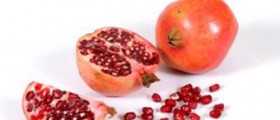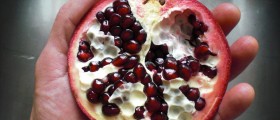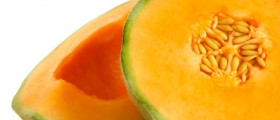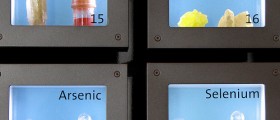
Benefits of AntioxidantsFree Radicals
Antioxidants are substances which can prevent or slow the oxidative damage to the human body. Oxidation is the chemical reaction that takes place when essential oxygen combusts inside the body and produces oxygen free radicals. Oxidation reaction that occurs in people is process of aging. Free radicals cause damage to the body cells. Free radicals are produced during normal metabolic processes but can be also ingested through smoking, certain foods, water, prolonged exposure to sun and many other pollutants in our environment. Free radicals are frequently associated with different medical conditions such as cardiovascular diseases, cancer, Parkinson’s disease and Alzheimer disease.
Properties of Antioxidants Antioxidants block process of oxidative process by neutralizing free radicals. Since antioxidants inhibit free radicals, they have anti-aging property. With age the body produces less antioxidants hence they must be supplemented.
Antioxidants fight against the risk of developing certain diseases and illnesses. They are important part of the strong immune system and reduce the risk of various infections.
Antioxidants are slowing degeneration of the brain and eyes and prevent heart disease. Antioxidants can lower the risk of cataract which can be caused by the protein oxidation in the eye.
Oxidative stress refers to low levels of antioxidants which can cause the damage or death of the body cells. Antioxidants become oxidized while they block oxidative process therefore they must be supplemented through diet.
Sources of Antioxidants
Common antioxidants include beta carotene, glutathione, vitamin C, vitamin A, vitamin E, selenium, melatonin and alpha lipoic acid. The body produces antioxidant enzymes such as superoxide dismutase, catalase and gluthatione peroxidase. However, selenium, manganese, copper, and zinc are necessary for the body to produce these antioxidants.
Antioxidants are naturally present in number of fruits and vegetables.
Vitamin E
Vitamin E is a fat soluble vitamin that protects essential fat in the red blood cells and can be stored with fat in the liver and other tissues. Vitamin E is a powerful antioxidant that delays aging, reduces the risk of cancer and heart disease and heals sunburns. Important sources include nuts, whole grains, avocado, seeds, green leafy vegetables, broccoli, wheat germ, peanut butter, soybean oil and fish-liver oil.
Beta Carotene
Antioxidant properties of beta carotene include prevention of infections, fight cancer, and aids in growth and development of bones. Beta carotene protects some vegetables from solar radiation damage and it is believed that it has similar role in the human body. Sources of beta carotene include: carrots, squash, broccoli, sweet potatoes, tomatoes, kale, peaches, apricots and peppers.
Vitamin C
Vitamin C or ascorbic acid is a water soluble vitamin that can help in healing of wounds, prevention of bruising and absorption of iron. Sources of this vitamin are citrus fruits, broccoli, cabbage, peppers, tomatoes, strawberries and mango.
Selenium
Selenium is a mineral and component of antioxidant enzymes. It protects against cell damage and cancer. Rich sources of selenium include Brazil nuts, fish, eggs, meat, whole grains and garlic.

















Your thoughts on this
Loading...